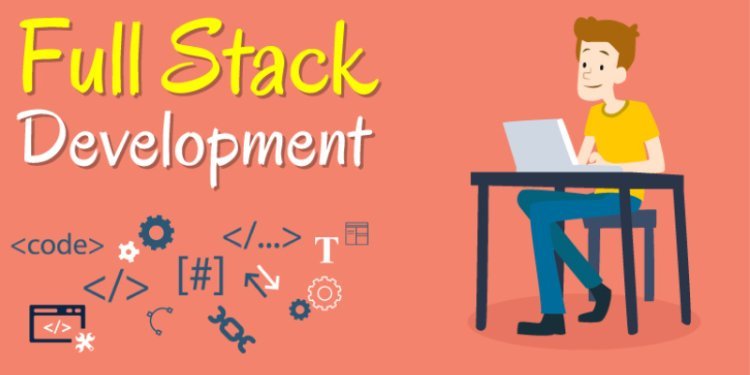How Does DevOps Integrate with Full Stack Development?
DevOps integrates with Full Stack Development by automating deployment, CI/CD, monitoring, and collaboration, ensuring faster, efficient, and scalable applications.

DevOps and Full Stack Development integrate seamlessly to streamline software development and deployment. Full Stack Developers handle front and backend development, while DevOps ensures efficient collaboration, automation, and continuous integration/deployment (CI/CD). By adopting DevOps practices like containerization, infrastructure as code, and automated testing, Full Stack Development becomes more agile, scalable, and reliable. This integration enhances productivity, reduces errors, and accelerates software delivery, creating a seamless development and operations workflow. For those looking to enhance their skills, a Full-Stack Developer Course in Mumbai at FITA Academy provides a solid foundation in both areas.
Understanding Full Stack Development and DevOps
What is Full Stack Development?
Full-stack Development involves working on both the frontend and backend of web applications. A Full-Stack Developer is proficient in multiple programming languages, frameworks, databases, and server management. This versatility allows developers to build complete web applications independently or as a team.
What is DevOps?
DevOps is a set of practices that connect software development (Dev) and IT operations (Ops). It shortens the development lifecycle while ensuring continued integration and continuous delivery (CI/CD). DevOps enhances cooperation between development and processes teams, leading to faster deployments, higher-quality code, and more reliable applications.
The Integration of DevOps with Full Stack Development
1. Continuous Integration and Continuous Deployment (CI/CD)
One of the primary ways DevOps integrates with Full-Stack Development is through CI/CD pipelines. Full-stack Developers must ensure that their applications can be automatically tested and deployed. Tools like Jenkins, GitHub Actions, and GitLab CI/CD help automate these processes, making deployment seamless and efficient.
2. Monitoring and Logging
Monitoring and logging are essential for maintaining system reliability, performance, and security. Monitoring tracks real-time metrics such as CPU usage, memory consumption, and network traffic, helping detect issues before they escalate. Full Stack Developer Course in Hyderabad covers key aspects of logging, which records system events, errors, and user activities, providing valuable insights for troubleshooting and compliance. They enable proactive issue resolution, enhance system visibility, and support audits with centralized log management, automated alerts, and analytics integration.
3. Security in DevOps (DevSecOps)
Security is a critical element of DevOps, and Full Stack Developers must incorporate security best practices in the development lifecycle. By integrating security testing tools and automated vulnerability scanning, developers can ensure that applications remain secure and compliant with industry standards.
Benefits of Combining Full Stack Development and DevOps
1. High Demand in the Industry
Full-stack development with DevOps is in high demand due to the growing need for universal developers who can manage front and backend technologies. Companies seek professionals who can build complete applications and efficiently manage development pipelines. DevOps practices enhance this skill set by focusing on automation, continued integration, and deployment, improving productivity and collaboration. As businesses adopt agile methodologies, the demand for full-stack developers with DevOps expertise continues to rise.
2. Better Career Growth and Salary Prospects
Learning full-stack development with DevOps opens up better career growth and salary prospects. Professionals with expertise in development and operations are highly sought for their ability to simplify workflows and improve project efficiency. These developers possess a broad skill set, which makes them universal to various roles and increases their value in the job market. A Full Stack Developer Course in Kochi equips you with these skills, helping you command higher salaries and enjoy more fantastic career advancement opportunities.
3. Faster and More Efficient Development
Integrating DevOps with Full Stack Development leads to faster software releases, improved collaboration, and fewer deployment failures. This ensures that developers work more efficiently and deliver high-quality applications.
4. Global Career Opportunities
Due to the universal demand for skilled professionals, full-stack development with DevOps offers global career opportunities. As businesses across various industries adopt modern technologies, companies seek developers to manage applications' development and operational aspects. With a broad skill set in full-stack development and DevOps practices, you become eligible for positions in tech hubs worldwide. This versatility allows for trim work, international job prospects, and collaboration on global projects.
DevOps and full-stack development integrate by fostering a collaborative, efficient approach to software delivery. DevOps practices, like continuous integration and continuous deployment (CI/CD), ensure that full-stack applications are built, tested, and deployed seamlessly. DevOps enhances the development cycle by automating workflows and encouraging regular updates, making it more reliable and faster. This integration improves collaboration between development and operations teams, leading to higher-quality software with quicker turnaround times. If you want to advance your career, a Full Stack Developer Course in Singapore can equip you with the needed skills. It will help you seamlessly integrate DevOps practices, enhancing your ability to deliver high-quality software efficiently.
What's Your Reaction?










